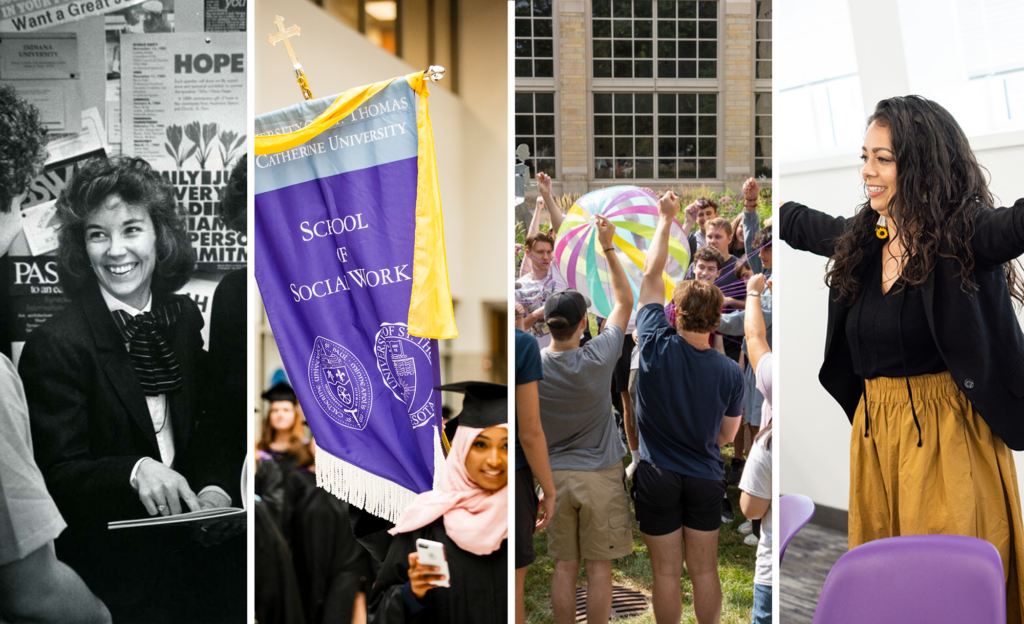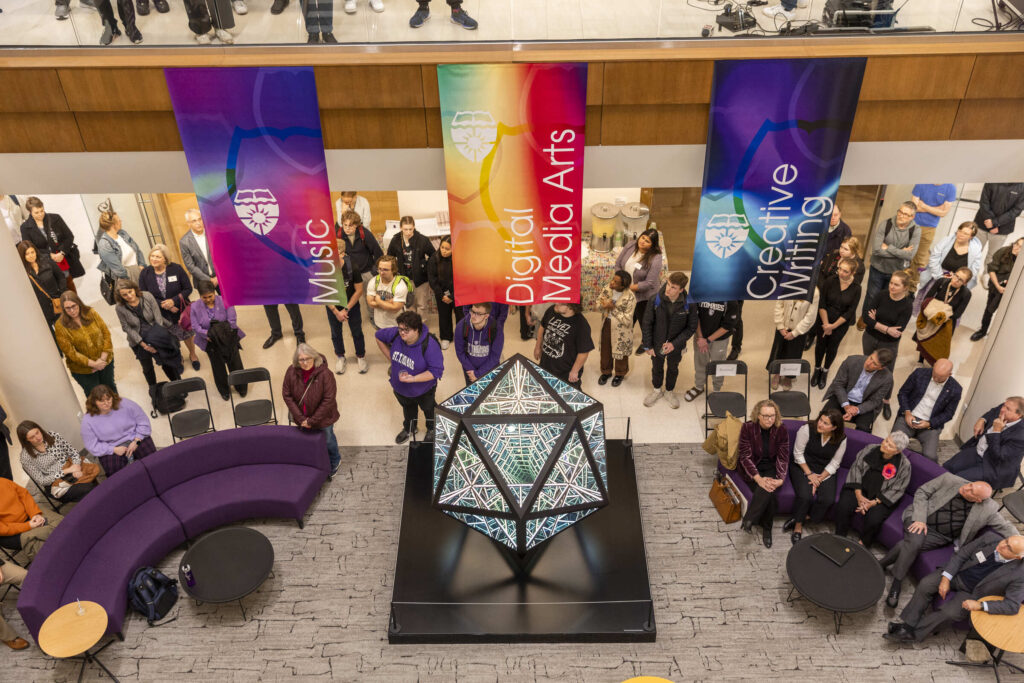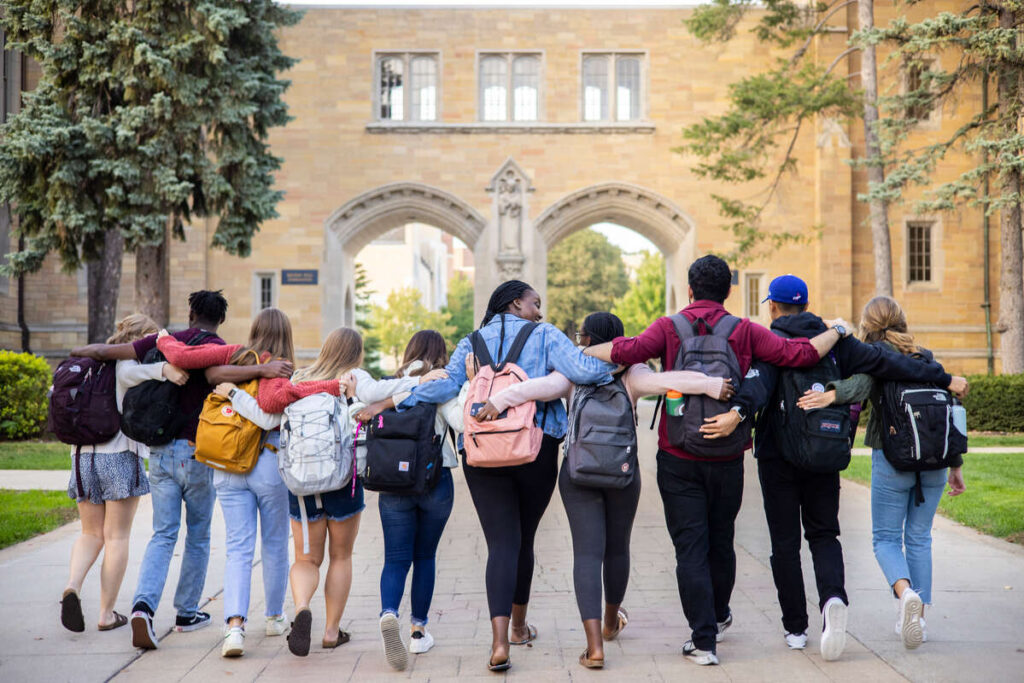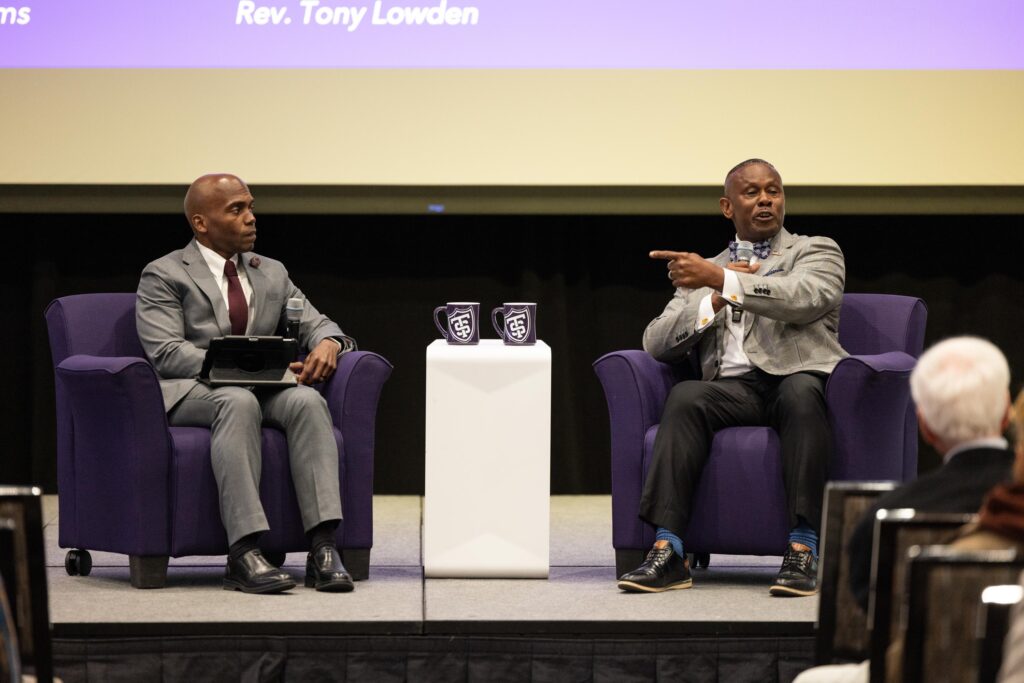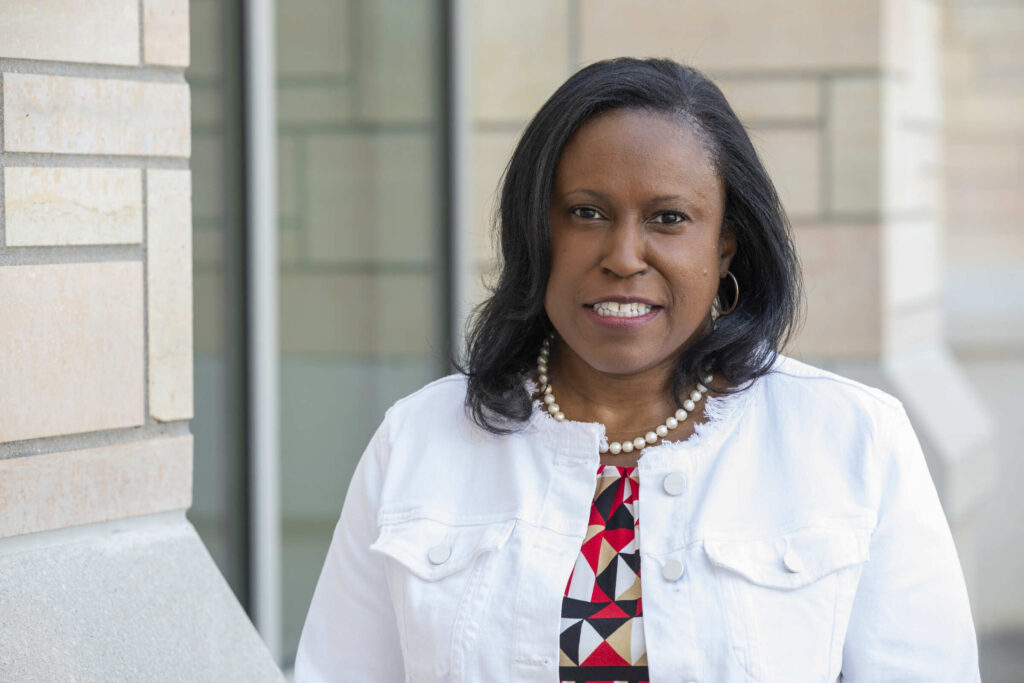This story is featured in the fall/winter 2020 issue of St. Thomas magazine.
Last January, in a pre-pandemic world, a small contingent of St. Thomas faculty, staff and students headed south for an immersive journey into the roots of the civil rights movement on the We March for Justice study tour.
Little did they realize the lessons they would learn on this trip would take on a whole new meaning after the killing of George Floyd by Minneapolis police officers created a wave of protests across the country. It was a stark reminder that the fight for racial justice is far from over.
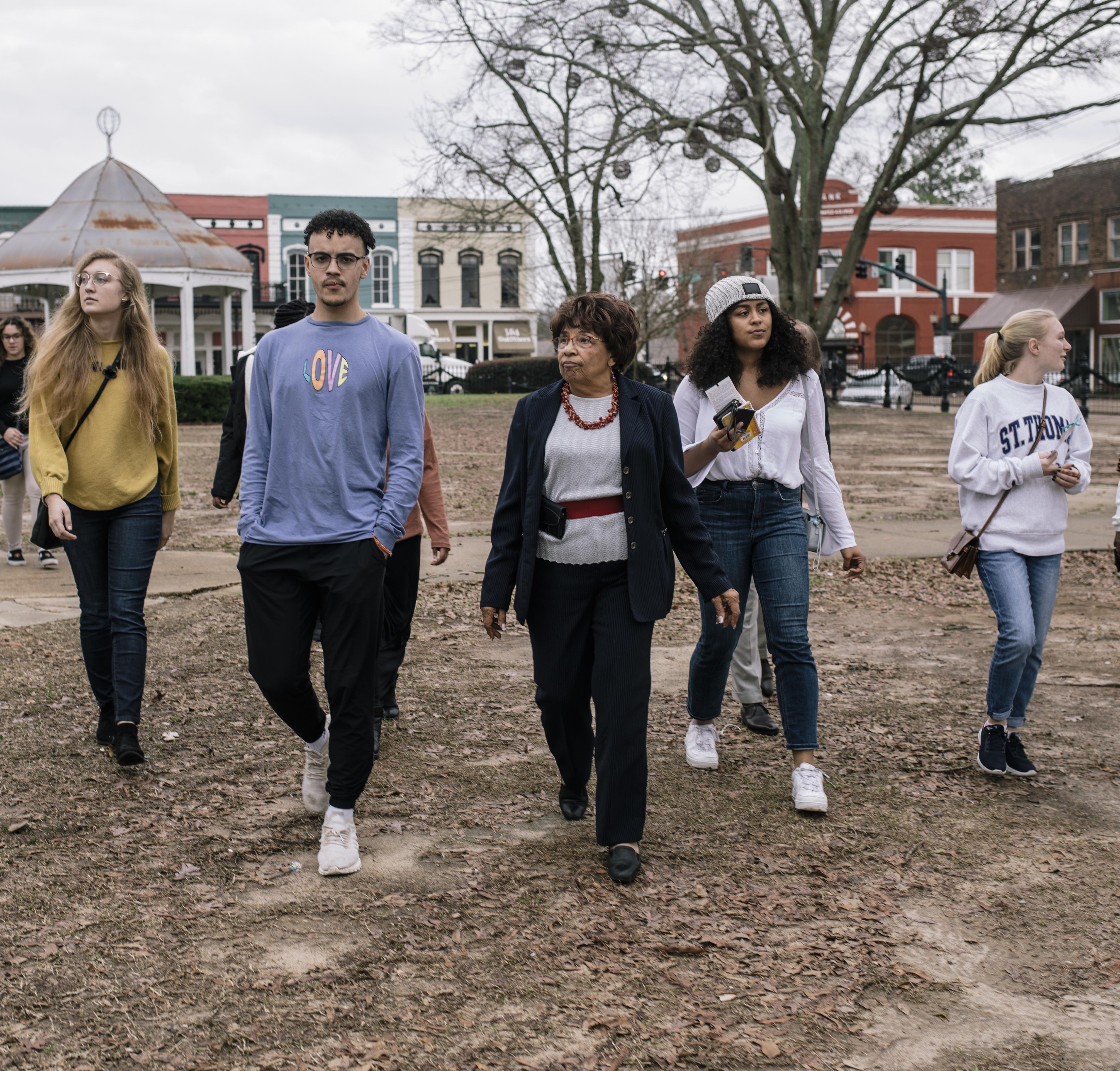
Dr. Flonzie Brown Wright, middle, gives students a tour of the town square in Canton, Mississippi.
For years, Cynthia Fraction, director of the Excel! Research Scholars Program, along with College of Arts and Sciences professors David Williard (History) and Todd Lawrence (English), have introduced St. Thomas students to a number of influential standard bearers of the civil rights struggle. Not only do students learn about the history of the movement firsthand on the study trip, they’re also inspired to be persistent as they embark on their own journey advocating for change.

The group walks across the Edmund Pettus Bridge in Selma, Alabama, where "Bloody Sunday" unfolded in 1965, when police attacked peaceful civil rights demonstrators.
The group traveled to Georgia, Alabama, Mississippi and Tennessee, at each stop meeting with civil rights foot soldiers, who shared firsthand accounts of their struggle against racial oppression. Students toured Canton, Mississippi, with Dr. Flonzie Brown Wright as their guide. As a young mother in the 1960s, she helped register thousands of voters even though she received death threats. Wright went on to become a county election commissioner and the first African American woman to win elected office in Mississippi post-Reconstruction Era.
At Tougaloo College, Hollis Watkins, one of the original members of the Student Nonviolent Coordinating Committee, shared freedom songs with the group and recounted his experience being arrested while fighting for voting rights. In the Mississippi Delta, the students visited sites associated with the 1955 abduction and brutal murder of 14-year-old Emmett Till.
So how can lessons from the civil rights movement be applied to the continuing struggle to overcome racial injustice in the United States? Here’s what some We March for Justice participants had to say.
Cynthia Fraction, director of the Excel! Research Scholars Program and co-leader of We March for Justice
Back then [during the civil rights movement] so many were fighting for the right to vote, to integrate courtrooms, desegregate schools and simply the human and civil right to live. Today we are fighting for many of the same things but our strategy in the fight must be different. Dr. Flonzie Brown Wright underscores the importance of getting an education. She tells us that foot soldiers today are passing the torch to young people and knowledge is the weapon that we need to continue to impact change in America. We must now fight with our minds and our hearts. Underscoring love and critical principle in today’s fight, Dr. Wright challenged us this year with a thought – “Movements move but commitments don’t change.” What I took from her challenge is the following: Knowledge is our power. If you are not educated you are not armed with the right ammunition and the struggle will continue.
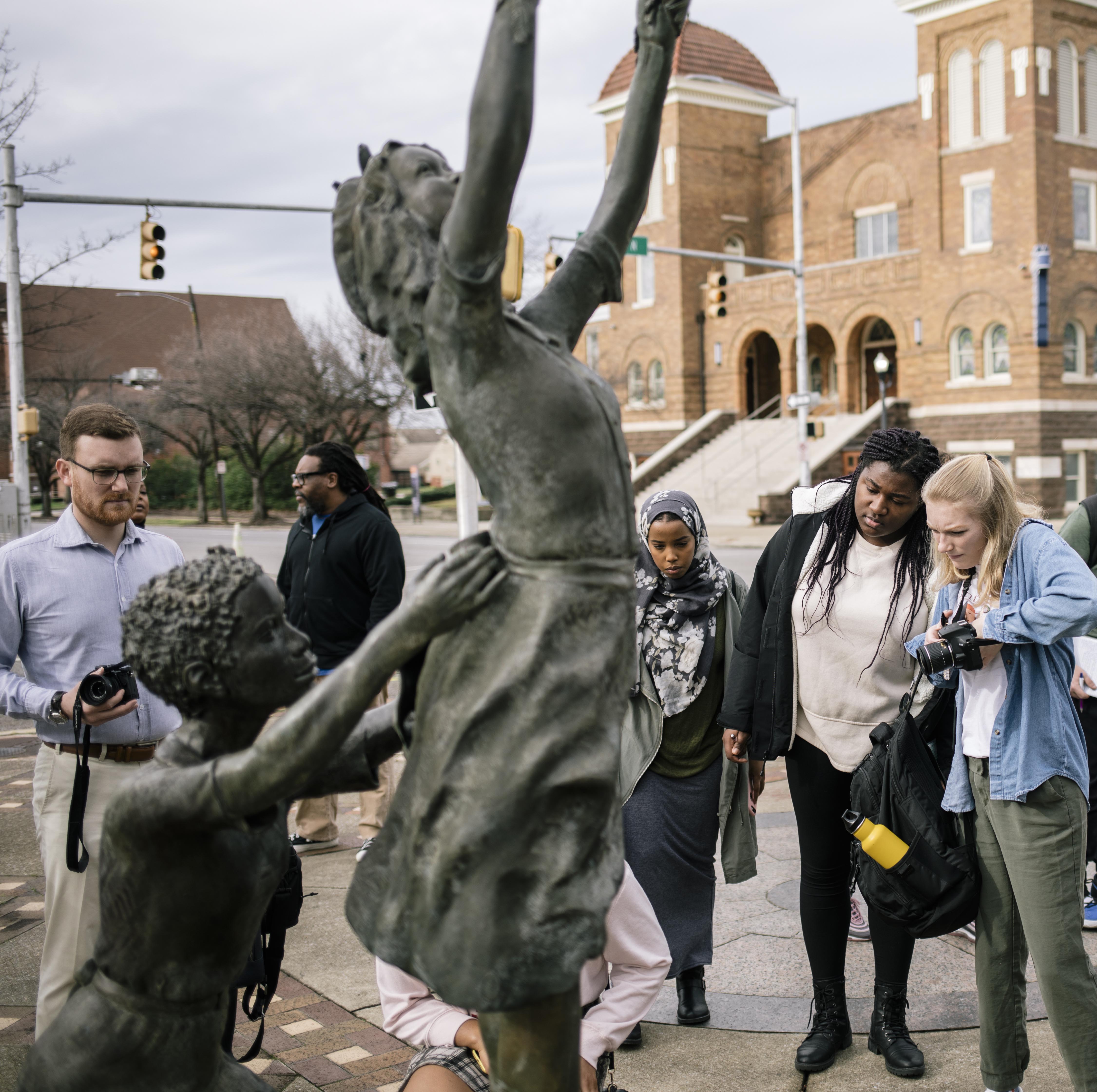
Students and faculty look at the Four Spirits Sculpture in Kelly Ingram Park in Birmingham, Alabama.
Nasteho Yasin, junior, international studies
In many ways racism has changed to be more covert, but the brutal lynchings of Black bodies has never stopped being on public display. Emmett Till’s mangled body had to be shown to the world to see the brutality of white supremacy, but there was room to tell lies and twist the story of an innocent 14-year-old boy. However, you would think that currently with the advancement of technology and full recordings of Black people being lynched, there would be more justice, but this couldn’t be further from the truth. The video of George Floyd’s death is powerful evidence of police brutality, however, because of racism, people view it with a different lens and assume that because he’s a Black man, he’s a criminal and a drug addict making him worthy of such a brutal death. This interpretation of Black people was created during the Atlantic slave trade and has fueled white supremacy to this very moment. Going to the Deep South on this trip and analyzing the civil rights movement has allowed me to recognize how much closer we are to a past of enslavement and Jim Crow laws than we are to a future in a mythical post-racial society.
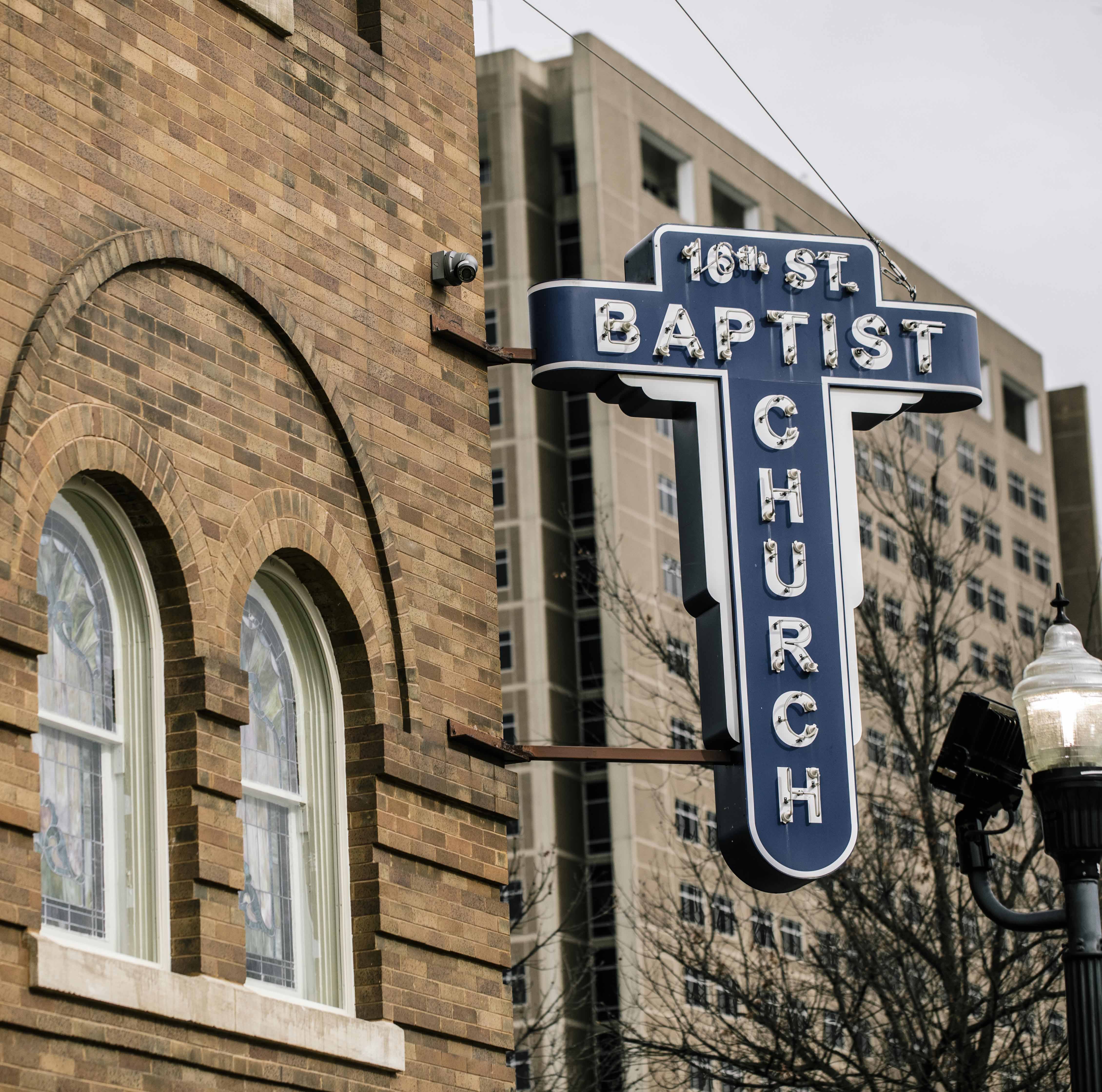
16th Street Baptist Church in Birmingham, Alabama, the site of a deadly Ku Klux Klan bombing that killed four young girls.
Alyssa Eggersgluss, senior, music education
We can hear echoes of voices from the civil rights movement in the words of Black Lives Matter protesters today. BIPOC [Black, Indigenous and people of color] individuals are still fighting for equality and basic compassion. However, it’s easy for people with privilege and power to downplay the systemic problems at hand because they haven’t lived or learned about these experiences. The narrative of race widely taught in America is too often a dismissive story from those in power. Many people treat the civil rights movement like the end of racism. A white narrative too often frames it that way. When we take the time to engage thoughtfully with a diverse array of content – when we search for stories advocating for racial justice that are intentionally downsized – we can begin to understand why there would still be protests about racial justice today.
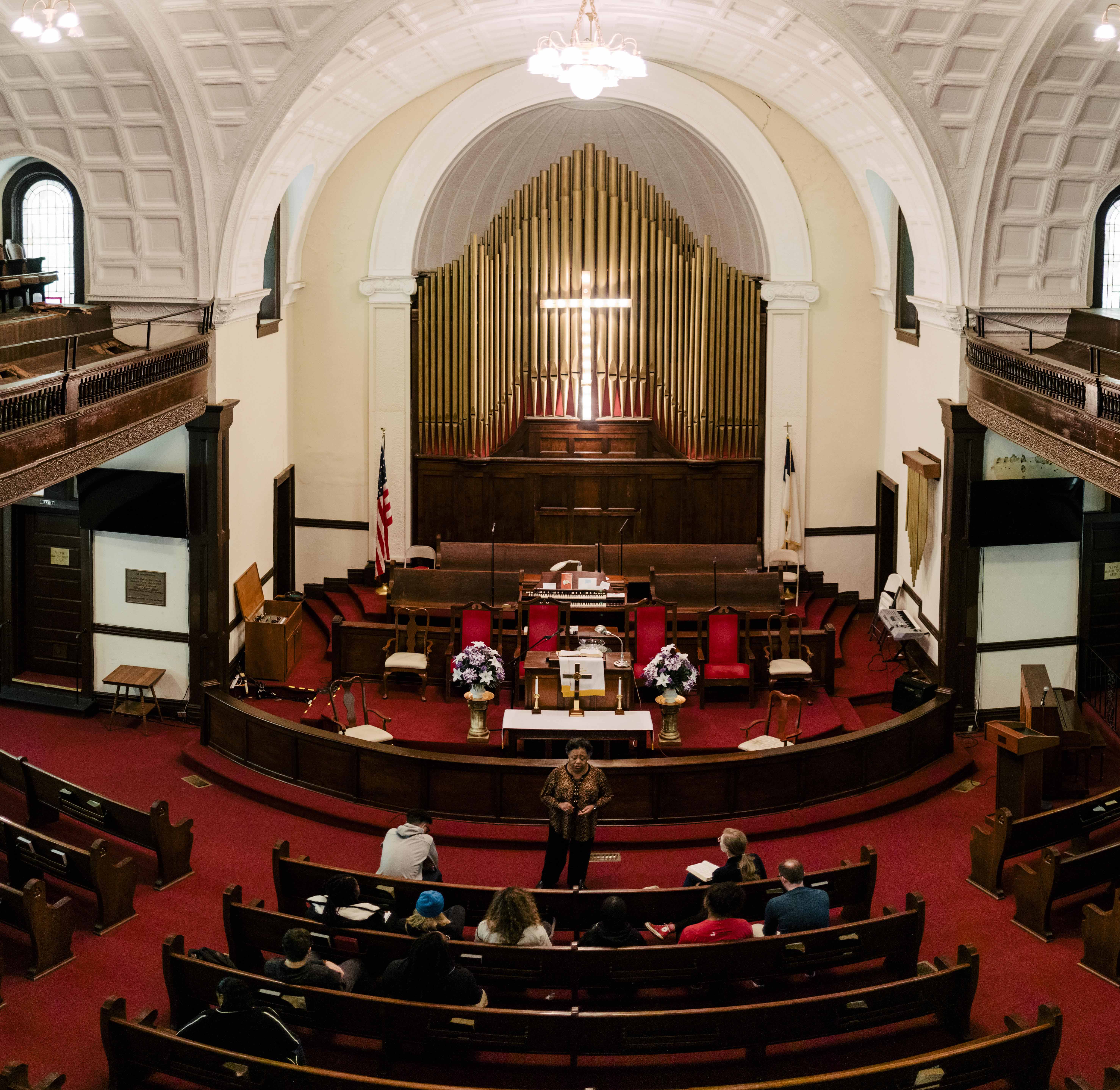
Civil rights historian and foot soldier Joyce O’Neill speaks to students, staff and faculty at Brown A.M.E. Baptist Church in Selma, Alabama.
Jonathan Rosario, junior, psychology and communication studies
Reflecting on the trip, what comes to my mind is the fact that systems of oppression have been in place for centuries, and resilience and community are catalysts for overcoming these systems. A specific quote that stuck out to me from the We March for Justice trip was from Dr. Flonzie Brown Wright, when she said, “Movements change, but commitments don’t.” That got me thinking about George Floyd, Breonna Taylor, Jacob Blake, Philando Castile and countless others who have lost their lives to a system that profits off of fear and pain. We’re currently living in a racially charged time, being able to learn from the past and the experience that I had on the trip really brought to light stories and experiences that cement this conclusion for me: No matter what the movement looks like, no matter how much they try to tell us that our commitment is futile, we will continue to tirelessly fight for equity and advancement of Black lives.
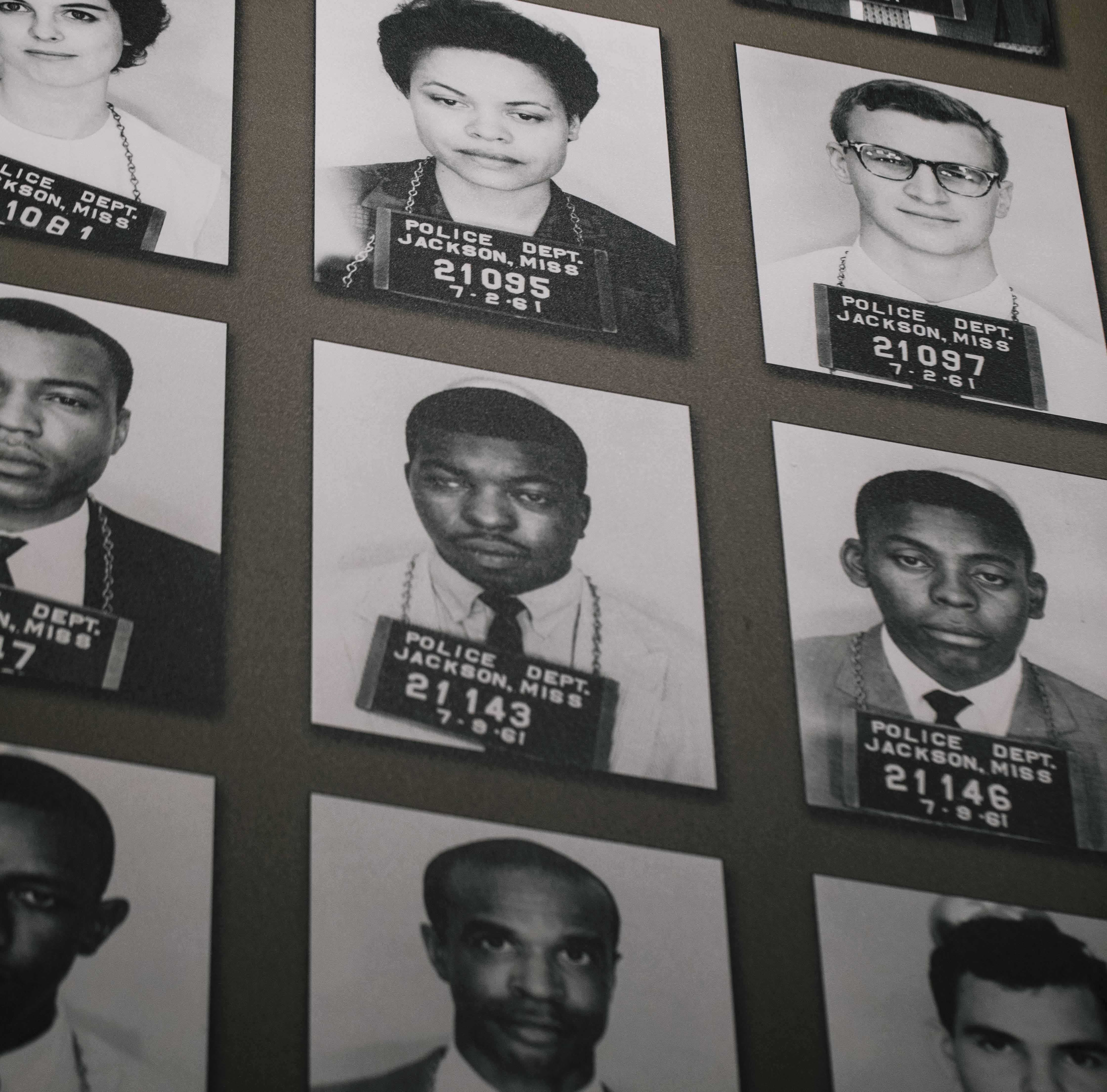
Photos of arrested Freedom Riders in the Mississippi Civil Rights Museum in Jackson, Mississippi.


